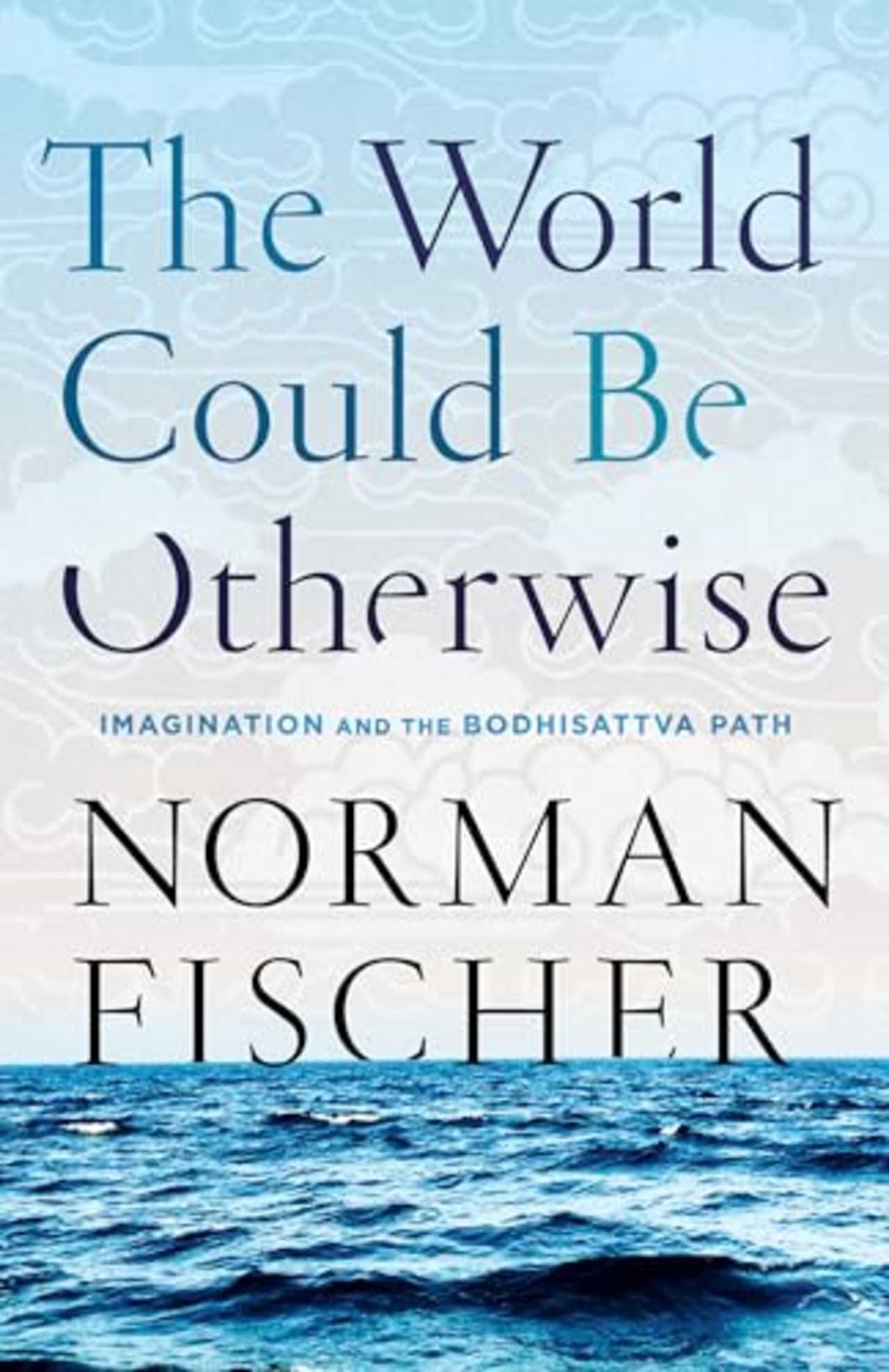Book Review: The World Could Be Otherwise by Norman Fischer


This book had been winking at me since the beginning of the year. For several years, Norman Fischer’s writing in Tricycle and elsewhere has been a source of pleasure to me. He writes lucidly and with a poet’s eye and phrase. Eventually, a couple of months after it was published, I gave in, bought this book, devoured it and then just reread it straight away. That’s rare for me.
Its subtitle, “Imagination and the Bodhisattva Path”, gives some of its flavour. As a poet, Norman is very aware that words can be both useful and useless, often at the same time. He addresses this paradox and difficulty several times in the book. “Imagination is a warm breeze that loosens up what seems rigid and cold” (p.28) enabling one to overcome these obstacles. For him, “Imagination isn’t an escape from reality. Imagination deepens and enriches reality, adding texture, depth, dimension, feeling and possibility. The truth is, all that is creative and ennobling in us ultimately sources in the imagination. Without imagination reality is too flat, too matter- of-fact, lacking in colour and fervour. “To go beyond the possible to the impossible, we need to imagine it.” (p.3). The book addresses the aspiration of the bodhisattva path. The four great vows of the Energy Bunnies of Buddhism (bodhisattvas) “are perfectly impossible, so we know we can’t take them as ordinary goals. They are imaginative goals, taken in an imaginative world by imaginative beings. … Such vows point out a direction and inspire our feeling and action, but they don’t pressure us.” (p.17)
After this point of departure, Norman examines the six paramitas with great compassion based on a lifetime’s practice. Generosity can be taking care of oneself as well as others; Ethical Conduct is rooted in kindness to oneself and others. Without Patience (he can’t find a better word, whose limitations he explores, for Kshanti; is it just “keeping on keeping on”?) the other paramitas will eventually fail. Joyful Effort (Virya) includes pithy explorations of vows, courage and hope. Meditation is seen in the context of other similar Sanskrit words and then explored very practically via samatha and vipassana. Finally Understanding (Prajna) addresses at some length “words”, why he uses this word for prajna and, not for the first time, emptiness – this time in depth.
And there is so much more. Each chapter ends with considerations of Dogen’s take on each paramita together with the relevant verses from both Tokme Zongpo’s Thirty-Seven Practices of a Bodhisattva and the Prajnaparamita Sutra in Eight Thousand Lines rounded off with Meditation and Daily Life Practices. Such richness entwined with personal reflections and practical suggestions. There are so many highlights for me that my copy is festooned with markers and highlighting. As it is not a text book, there is no index so, if you find yourself regularly feeling “Oh Yes!”, the advice would be to use whatever marking system you like to use or start a new one.
Perhaps the biggest shift on first reading was his exposition of the 16 Bodhisattva vows which, for the first time, I understood in their lay completeness. Now, what was that practical advice on handling anger?…
The World Could be Otherwise. Norman Fischer, 2019, Shambala Publications
- Publication date:
- Modified date:
- Categories: 2019 Book Reviews Jeremy Woodward Others
-
 Western Chan Fellowship CIO
Western Chan Fellowship CIO - Link to this page
©Western Chan Fellowship CIO 1997-2026. May not be quoted for commercial purposes. Anyone wishing to quote for non-commercial purposes may seek permission from the WCF Secretary.
The articles on this website have been submitted by various authors. The views expressed do not necessarily represent the views of the Western Chan Fellowship.
Permalink: https://w-c-f.org/Q372-545
